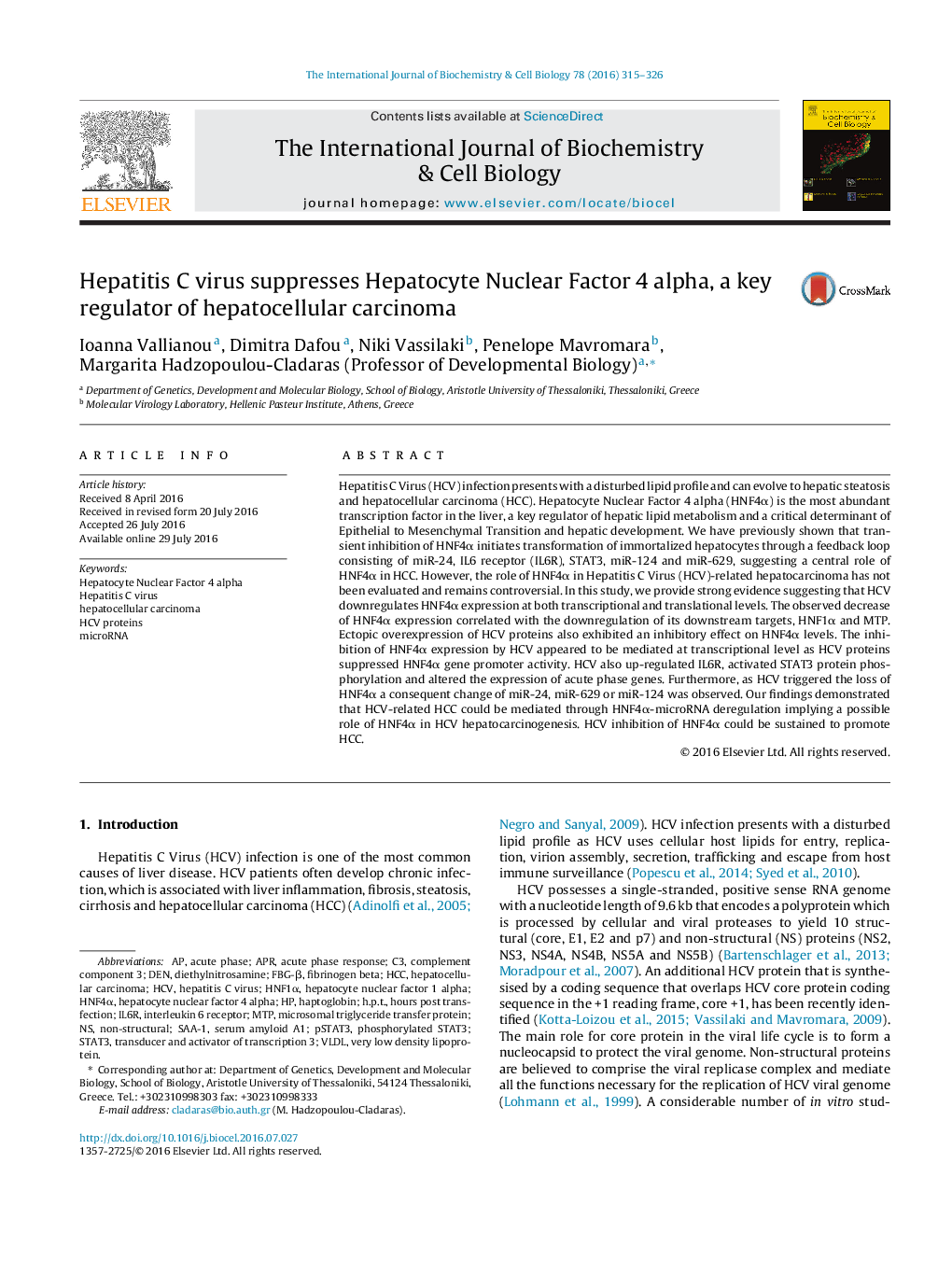| کد مقاله | کد نشریه | سال انتشار | مقاله انگلیسی | نسخه تمام متن |
|---|---|---|---|---|
| 1983316 | 1539865 | 2016 | 12 صفحه PDF | دانلود رایگان |

• HCV suppresses HNF4α expression in both RNA and protein levels.
• HCV viral proteins reduce HNF4α expression.
• HCV viral proteins downregulate HNF4α promoter activity.
• HCV perturbs HNF4α-related microRNA (miR-24, miR-629 and miR-124) expression.
Hepatitis C Virus (HCV) infection presents with a disturbed lipid profile and can evolve to hepatic steatosis and hepatocellular carcinoma (HCC). Hepatocyte Nuclear Factor 4 alpha (HNF4α) is the most abundant transcription factor in the liver, a key regulator of hepatic lipid metabolism and a critical determinant of Epithelial to Mesenchymal Transition and hepatic development. We have previously shown that transient inhibition of HNF4α initiates transformation of immortalized hepatocytes through a feedback loop consisting of miR-24, IL6 receptor (IL6R), STAT3, miR-124 and miR-629, suggesting a central role of HNF4α in HCC. However, the role of HNF4α in Hepatitis C Virus (HCV)-related hepatocarcinoma has not been evaluated and remains controversial. In this study, we provide strong evidence suggesting that HCV downregulates HNF4α expression at both transcriptional and translational levels. The observed decrease of HNF4α expression correlated with the downregulation of its downstream targets, HNF1α and MTP. Ectopic overexpression of HCV proteins also exhibited an inhibitory effect on HNF4α levels. The inhibition of HNF4α expression by HCV appeared to be mediated at transcriptional level as HCV proteins suppressed HNF4α gene promoter activity. HCV also up-regulated IL6R, activated STAT3 protein phosphorylation and altered the expression of acute phase genes. Furthermore, as HCV triggered the loss of HNF4α a consequent change of miR-24, miR-629 or miR-124 was observed. Our findings demonstrated that HCV-related HCC could be mediated through HNF4α-microRNA deregulation implying a possible role of HNF4α in HCV hepatocarcinogenesis. HCV inhibition of HNF4α could be sustained to promote HCC.
Journal: The International Journal of Biochemistry & Cell Biology - Volume 78, September 2016, Pages 315–326